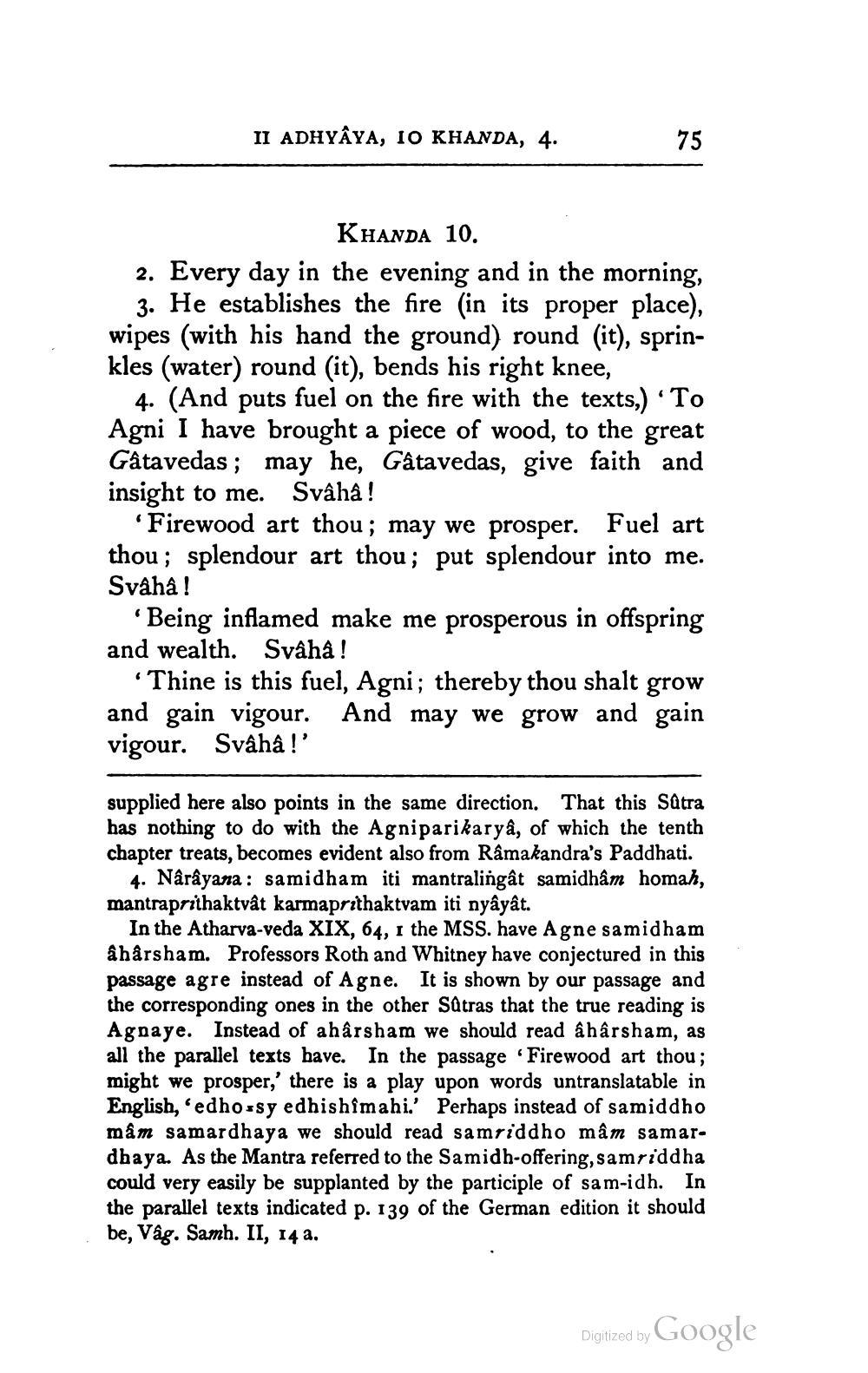________________
II ADHYAYA, 10 KHANDA, 4.
75
KHANDA 10. 2. Every day in the evening and in the morning,
3. He establishes the fire (in its proper place), wipes (with his hand the ground) round (it), sprinkles (water) round (it), bends his right knee,
4. (And puts fuel on the fire with the texts,) .To Agni I have brought a piece of wood, to the great Gâtavedas; may he, Gâtavedas, give faith and insight to me. Svâhâ !
'Firewood art thou; may we prosper. Fuel art thou; splendour art thou; put splendour into me. Svâhâ !
'Being inflamed make me prosperous in offspring and wealth. Svâhà !
*Thine is this fuel, Agni; thereby thou shalt grow and gain vigour. And may we grow and gain vigour. Svâhâ !'
supplied here also points in the same direction. That this Satra has nothing to do with the Agniparikarya, of which the tenth chapter treats, becomes evident also from Râmakandra's Paddhati.
4. Narayana : samidham iti mantralingât samidhâm homah, mantraprithaktvật karmaprithaktvam iti nyâyât.
In the Atharva-veda XIX, 64, 1 the MSS. have Agne samidham a hårsham. Professors Roth and Whitney have conjectured in this passage agre instead of Agne. It is shown by our passage and the corresponding ones in the other Satras that the true reading is Agnaye. Instead of a hârsham we should read â hârsham, as all the parallel texts have. In the passage Firewood art thou; might we prosper,' there is a play upon words untranslatable in English, edhossy edhishimahi.' Perhaps instead of samiddho mâm samardhaya we should read samriddho mâm samardhaya. As the Mantra referred to the Samidh-offering, samriddha could very easily be supplanted by the participle of sam-idh. In the parallel texts indicated p. 139 of the German edition it should be, Vâg. Samh. II, 14 a.
Digitized by Google




